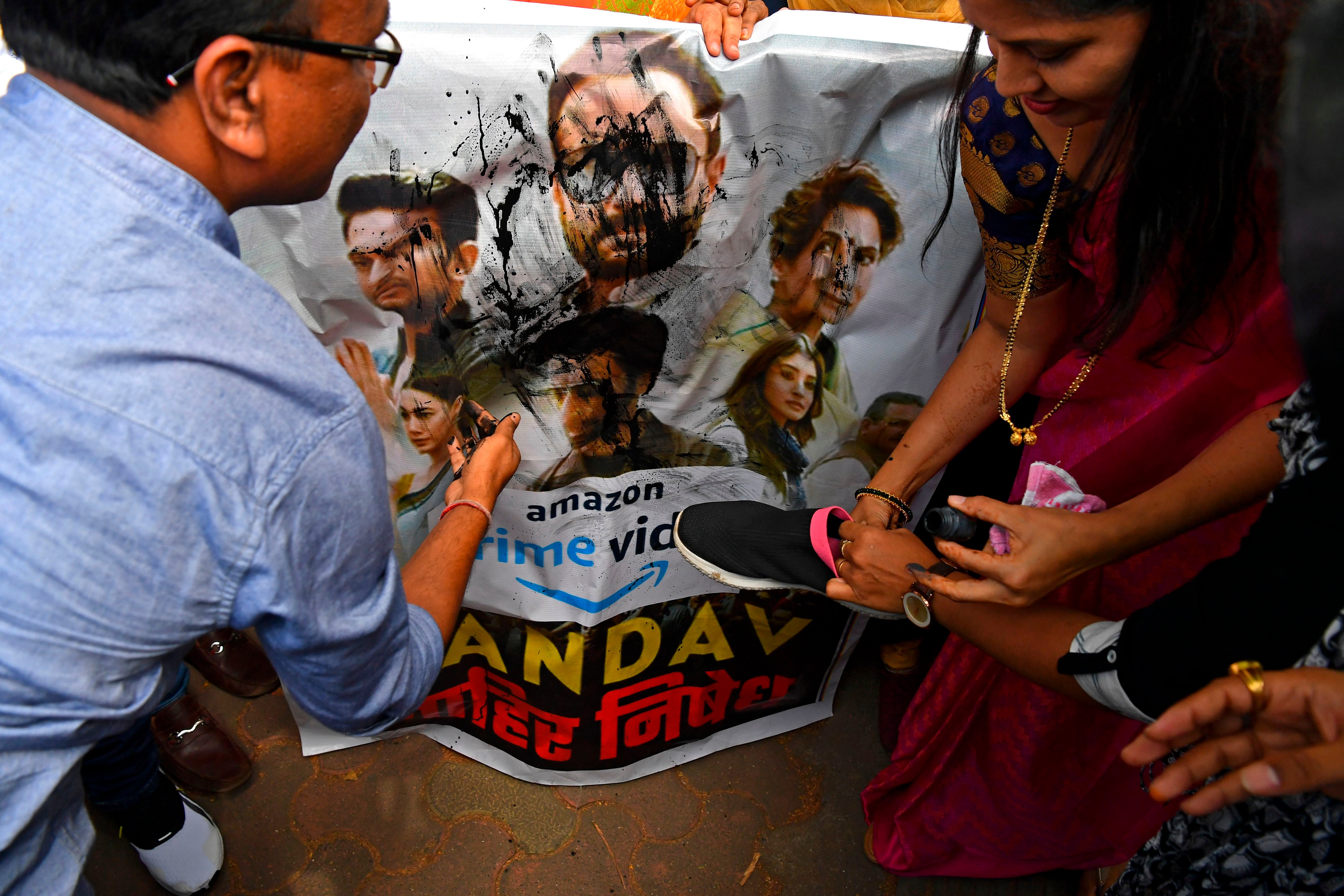Amazon Prime show censored by Indian information ministry in first for the streaming platform
Tandav, a show based on Netflix’s House of Cards and starring a number of Bollywood A-listers, has been mired in controversy since its release last Friday as Namita Singh reports


A new Indian political drama series on Amazon Prime has been forced to edit out controversial scenes after direct intervention from the government, making it the first instance of censorship on a streaming platform in the country since the government brought such content under the control of the Ministry of Information.
Tandav, which stars several Bollywood A-listers including Saif Ali Khan, has been mired in controversy since its release last Friday, accused of “hurting religious sentiments”.
Loosely based on the hit US Netflix series House of Cards, the show has drawn criticism from several politicians of the ruling Hindu nationalist Bharatiya Janata Party (BJP) for “deliberately mocking Hindu gods and disrespecting Hindu religious sentiments".
The development came as the actors and makers of the series issued an “unconditional” apology after a slew of criminal cases were registered against them in the states of Uttar Pradesh, Madhya Pradesh and Maharashtra.
The Information and Broadcast ministry had summoned Amazon Prime and the makers for an explanation on Sunday, even before the first cases were filed, reported the Indian Express.
It is not the first time a streaming platform has found itself at the centre of controversy for offending religious and political sensibilities in India. In November last year, a police probe was sought against Netflix series A Suitable Boy after hardline Hindus objected to a scene involving an interfaith couple kissing in front of a temple.
But it is the first case of censorship arising out of direct intervention from the central government since it amended the (Allocation of Business) Rules, 1961, on 10 November 2020 to bring streaming platforms such as Netflix, Hotstar and Amazon’s Prime Video under the purview of the Information and Broadcasting Ministry.
“The cast and crew of Tandav have made the decision to implement changes to the web series to address the concerns raised,” said creator Ali Abbas Zafar in a statement posted on social media. “We thank the Ministry of Information and Broadcasting for the guidance and support in the matter. We once again apologise if the series has unintentionally hurt anybody’s sentiments.” Amazon Prime has so far not issued any statement.
Advocates of digital rights in the country questioned whether the ministry has the power to censor streamed content under the new legislation. “There is no law under which the ministry can direct OTT (streaming) platforms to censor content,” Nikhil Pahwa, a digital rights activist and founder of the tech journalism website Medianama, told The Independent.
“This allocation of work does not give legal power to the ministry to actually step in and start exercising functions that actually need to be authorised through an act of parliament," said Apar Gupta, a Supreme Court advocate and executive director of the Internet Freedom Foundation.
While film and TV certification bodies created through a law passed by both the houses of the parliament regulate public content in India, there is no such body created to certify content on online streaming platforms.
“There is no legislative basis at present for regulating content on streaming platforms through pre-certification, such as that [which] exists for cinema exhibition or television broadcasting," explained Gupta.
“The issue here is that there is a huge amount of political patronage given to these people who are perpetually offended over every second television show that does not match their sensibility or their desire for certain political propaganda," he said.
These sentiments were echoed by Pahwa, who argued that: "It is not the rule of law, it is the rule of the mob. And so it depends on the streaming services themselves to actually stand up to such pressure and not modify the content until the court directs them to do so.”



Join our commenting forum
Join thought-provoking conversations, follow other Independent readers and see their replies
Comments